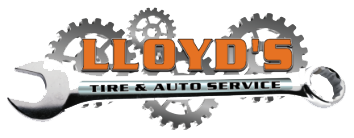Auto Diagnostics 101: Understanding Your Car's Warning Signs
Modern vehicles communicate problems through warning lights, unusual sounds, and performance changes. Understanding these signals helps you address issues early, preventing minor problems from becoming expensive repairs and keeping your vehicle reliable for daily use.
Dashboard Warning Lights Explained
Check engine lights indicate various engine or emission system problems detected by onboard computers. These sophisticated systems monitor hundreds of parameters and store diagnostic codes when problems occur. Ignoring check engine lights can lead to decreased fuel economy, failed emissions tests, and expensive component damage.
Oil pressure and temperature warning lights signal immediate attention requirements. Low oil pressure can destroy engines within minutes, while overheating causes costly damage to cylinder heads and gaskets. These warnings require immediate vehicle shutdown and professional evaluation.
Unusual Sounds and Their Meanings
Grinding noises during braking indicate worn brake pads that require immediate replacement. Continuing to drive with grinding brakes damages rotors significantly, increasing repair costs from pad replacement to complete brake system overhaul.
Squealing sounds from belts suggest wear or improper tension that affects alternator, power steering, and air conditioning operation. High-pitched whining during acceleration may indicate transmission problems that require prompt professional diagnosis.
Performance Changes That Signal Problems
Rough idling, hesitation during acceleration, or stalling indicate fuel system, ignition, or engine management problems. These symptoms often worsen gradually, making early diagnosis crucial for preventing complete system failures.
Transmission problems manifest as delayed shifting, slipping gears, or harsh engagement. These expensive systems require immediate attention when symptoms appear, as continued driving can cause catastrophic internal damage.
Modern Diagnostic Technology
Professional diagnostic equipment reads computer codes and monitors real-time system performance. Our diagnostic services use advanced scanners that access manufacturer-specific data unavailable to generic code readers.
Comprehensive diagnostics examine all vehicle systems, not just the component triggering warning lights. This thorough approach identifies related problems and prevents repeated repair visits for interconnected issues.
Electrical System Diagnostics
Electrical problems can cause seemingly unrelated symptoms across multiple vehicle systems. Dim headlights, slow starter operation, or intermittent accessory failures often trace to charging system or battery problems that affect overall vehicle reliability.
Modern vehicles use complex wiring networks that require specialized diagnostic procedures. Professional technicians understand these systems and can efficiently locate problems that might take hours to find using basic troubleshooting methods.
Fuel System Diagnostic Procedures
Poor fuel economy, rough running, or starting problems often indicate fuel system issues. Clogged injectors, failing fuel pumps, or contaminated fuel require specific diagnostic procedures to identify root causes rather than symptoms.
Fuel system cleaning and maintenance prevent many diagnostic issues. Regular service removes deposits that interfere with proper fuel delivery and combustion, maintaining optimal engine performance and preventing expensive component failures.
Emission System Diagnostics
Emission systems include catalytic converters, oxygen sensors, and exhaust gas recirculation components that ensure clean exhaust and optimal fuel economy. These systems work together, and failure of one component often affects others.
Failed emission components cause check engine lights, reduced fuel economy, and inspection failures. Professional diagnosis identifies specific components requiring replacement rather than guessing based on symptoms alone.
When to Seek Professional Diagnosis
Warning lights, unusual noises, or performance changes require professional evaluation. Early diagnosis prevents minor issues from becoming major expenses and ensures safe, reliable vehicle operation for daily transportation needs.
Don't ignore intermittent problems that seem to resolve temporarily. These symptoms often indicate developing issues that will eventually cause complete system failures, potentially leaving you stranded at inconvenient times.
Preventive Diagnostic Services
Regular diagnostic checks during routine maintenance identify developing problems before they cause symptoms. This proactive approach prevents unexpected breakdowns and allows you to plan repairs around your schedule rather than dealing with emergency situations.
Comprehensive vehicle health checks examine all major systems and provide detailed reports on component condition. This information helps prioritize maintenance and repair decisions based on actual component wear rather than guesswork.
For professional automotive diagnostics and honest problem identification, contact Lloyd's Tire & Auto at (804) 737-2828 . Our experienced technicians use advanced diagnostic equipment to accurately identify problems and provide reliable solutions for your vehicle's needs.
